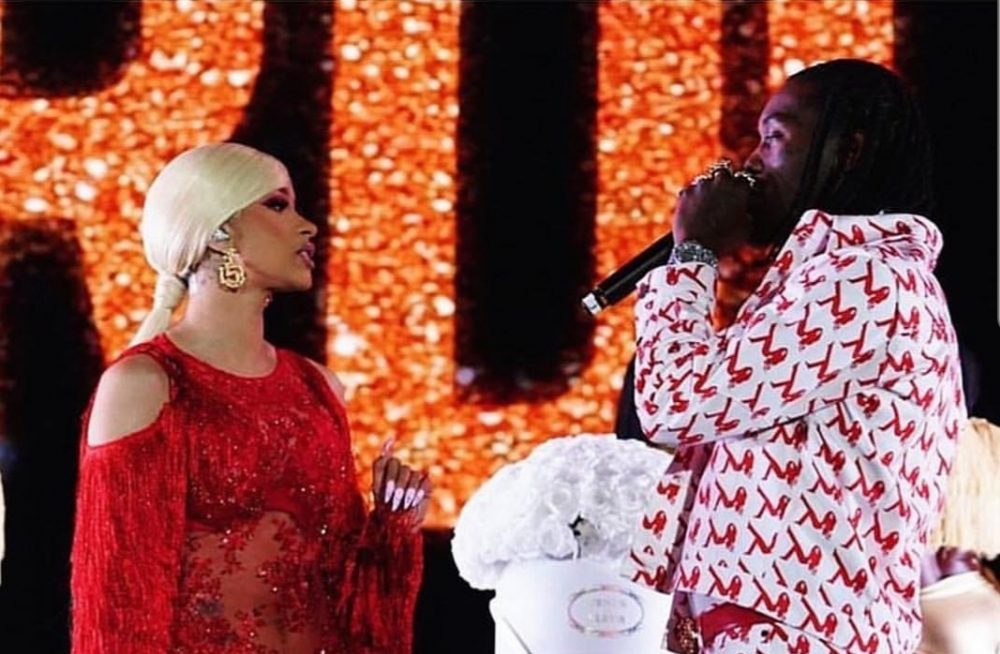[ad_1]
The #MeToo and #TimesUp movement placed sexual violence, workplace discrimination, and harassment against women—particularly black and brown women—at the forefront of national media. Women from Hollywood movie sets and record label companies to corporate offices and lay positions shared stories of violence and injustice projected onto them because of gender politics and power dynamics. Their courage and voices are the reason serious conversations are now being had nationwide—even on the House floor. These issues have come a long way since the days of Anita Hill. The needle has finally moved forward.
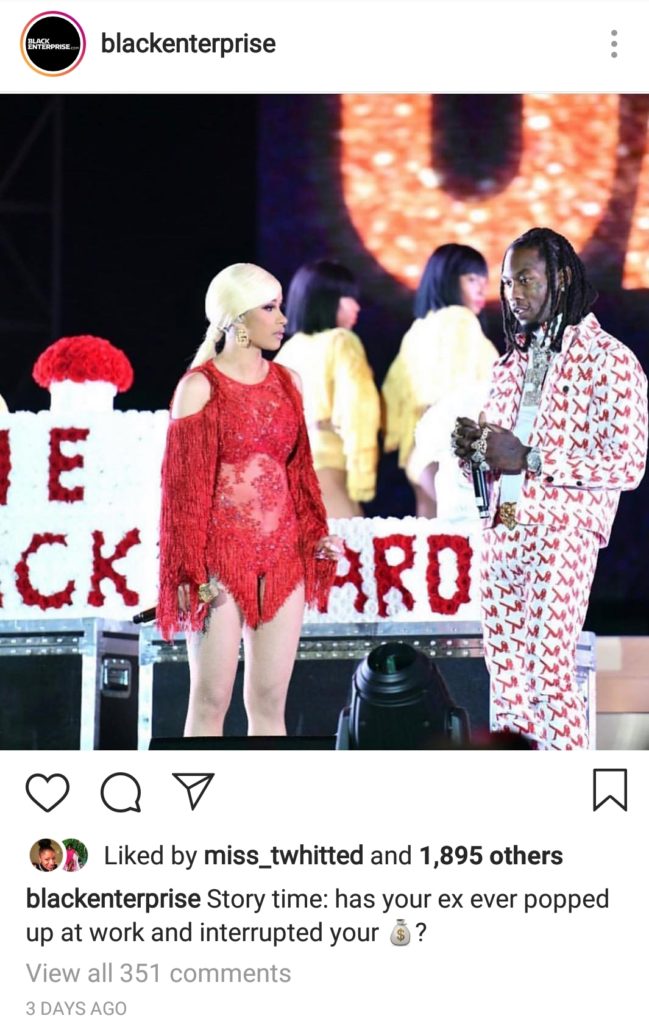
However, another factor that threatens women on their jobs may not have been considered: Workplace safety for women.
On Dec. 14, crossover rapper Cardi B, who made history at the Rolling Loud Festival at its first female headliner, was ambushed by her estranged spouse Offset. The Migos rapper bum-rushed the set to lay bare an apologetic plea for his wife’s forgiveness and to beg her to take him back. The “Bodak Yellow” star appeared pissed off and quite unimpressed. After a brief exchange of words between the two, Offset, along with three carts of roses, was ushered off stage, presumably, by the same security team that gave him access to the stage. While many find Offset’s grand gesture to be endearing and representative of a man’s regret and vulnerability, others viewed his actions as an off-putting display of toxic masculinity.
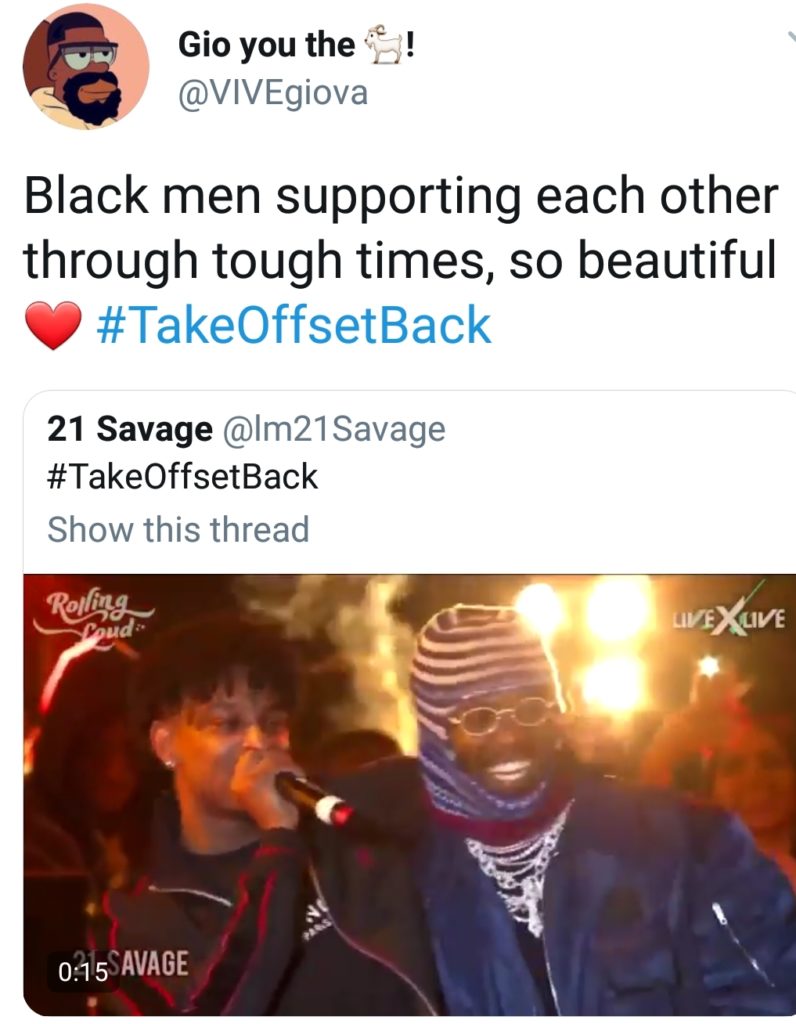
For others, the entire debacle raises a more nuanced concern—which revolves around the safety of women in the workplace and the job’s responsibility to protect them.
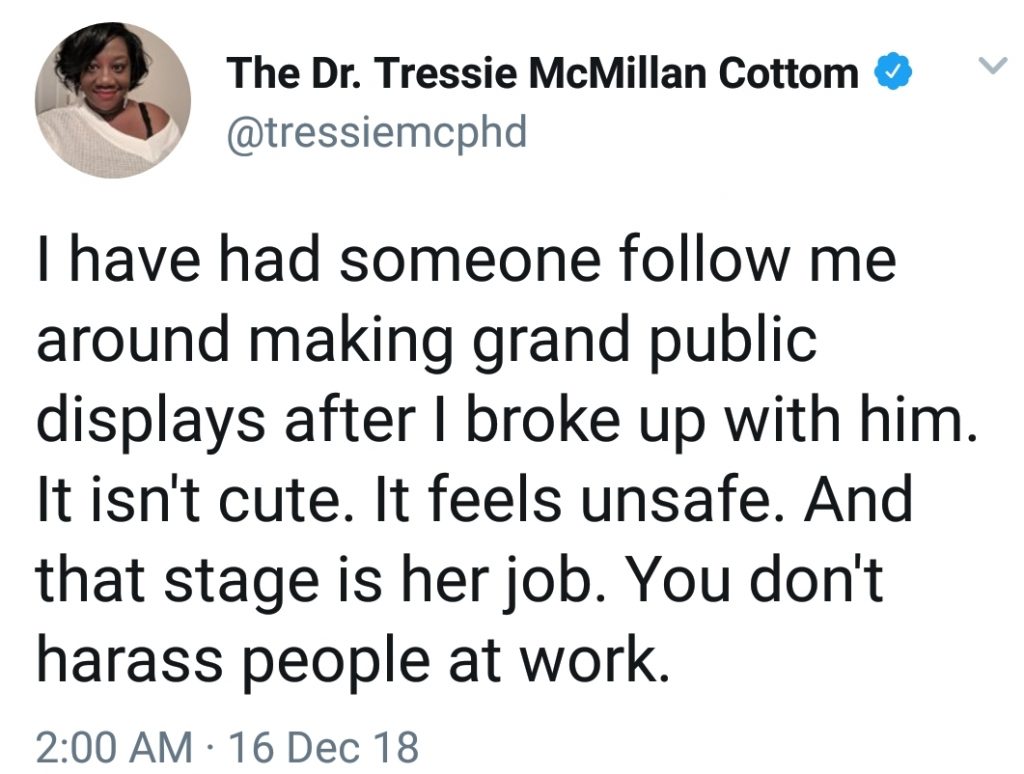
Perhaps this is a discussion worthy of having. Considering violence against women at the workplace ranges from harassment, invading personal space, intimidation, threats, physical and verbal assaults, and murder, according to the Occupational Safety and Health Administration (OSHA). Statistics from the U.S. Bureau of Labor reveal that in 2016, nearly 17,000 employees in the private sector were confronted by non-deadly violence in the work environment; female victims made up 70%. Though such offenses can occur at the hands of co-workers, clients, customers, and visitors, women are affected more gravely by intimate partner violence at their workplace.
The same statistical data reports 500 homicides occurred in the workplace; six times the rate from the previous year. Of that total, 40% of work-related homicides, committed by relatives or domestic partners, were perpetrated against women—compared to 2% for men. Not even a month ago, Dr. Tamara O’Neal was tragically killed while working in the emergency room at Chicago’s Mercy Hospital by a jilted ex-fiancé. Thusly, workplace violence can happen impulsively to anyone; these stats cannot be taken lightly.
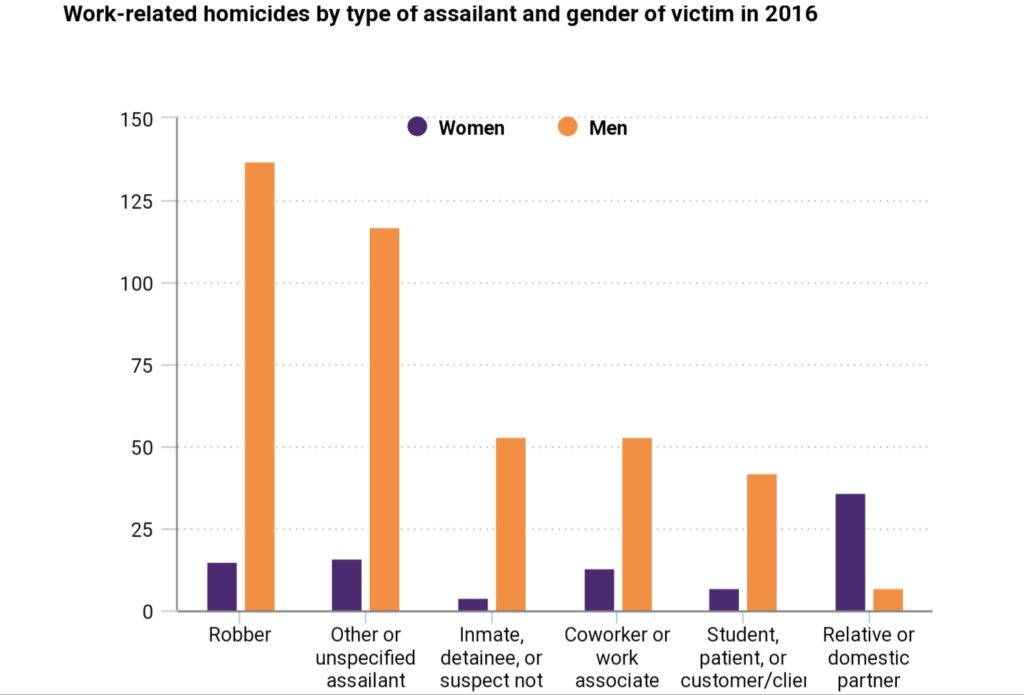
(U.S. Bureau of Labor )
Shatema Threadcraft, an associate professor at Dartmouth and author of Intimate Justice, provided additional context to The Cut on why women’s safety at the workplace matters:
“Though Cardi, as a rich celebrity, is not in the typical situation of a woman having a man show up to her job, we should think about her experience through the lens of women, who are often faced with terrible choices when they have to leave relationships—do they keep showing up to a job every day where they know a violent romantic partner can find them or do they leave that job and endure economic devastation as a result?”
None of this is to say Offset’s intentions were to financially or physically harm his wife–albeit his insidious antics—but rather to address safety deficiencies in workplaces that could potentially lead to danger. Rolling Loud co-founders Tariq Cherif and Matthew Zingler, Cardi B’s management team, and hired stagehands dropped the ball. All involved contributed to a working woman being vulnerable at her workplace, and this can no longer be a normalized practice. Rolling Loud denied any awareness or association with Offset’s coup d’état:
“We’re getting blamed as if we conspired to do this, and I just want to make it clear that we did not. Cardi’s management was in on it, it had nothing to do with the festival. The artist is in full control of the stage and they determine who gets on and off,” said Cherif, according to The Los Angeles Times.
“I’m sorry, bruh,” but no bueno.
While on the topic of women’s safety and being accosted at the workplace, it is remiss to not mention Cardi B’s alleged involvement in a strip club attack of two female bartenders at their workplace, which is equally no good.
Nonetheless, Rolling Loud’s response lacks the integrity that all businesses, corporations, employers, and organizations should have for a breach of safety regarding an employee, especially when the employee party is a woman. They, like many other entities, should take the L, assume accountability, and be proactive in establishing a workplace policy that goes out of its way to protect women; one that secures the work environment from ex-lovers and any other persons threatening their bodies and personal space.
The OSHA website outlines essential information for employers to establish policies on workplace violence. The initiative is clear and can be found here:
https://www.cdc.gov/niosh/topics/violence/fastfacts.html

The ideas and opinions expressed in this article are solely those of the author’s and not necessarily the opinion of Black Enterprise.
[ad_2]
Source link

